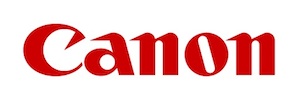Frank Goes to War
Frank heard that American Airlines is discontinuing its inflight magazine. This prompts a discussion of the “war on paper” that began more than 30 years ago, which had led to many paper mill closures—a situation only made worse by the pandemic.
 Official camera partner of WhatTheyThink and the drupa daily. Video from drupa 2024
Official camera partner of WhatTheyThink and the drupa daily. Video from drupa 2024
Video Center
- Questions to ask about inkjet for corrugated packaging
- Can Chinese OEMs challenge Western manufacturers?
- The #1 Question When Selling Inkjet
- Integrator perspective on Konica Minolta printheads
- Surfing the Waves of Inkjet
- Kyocera Nixka talks inkjet integration trends
- B2B Customer Tours
- Keeping Inkjet Tickled Pink
© 2024 WhatTheyThink. All Rights Reserved.















Discussion
By Mike Cloghessy on Aug 06, 2021
Thanks Frank....paper is made from a renewable resource. No old growth forest are cut to make paper. Weyerhaeuser and other paper manufacturers have their own tree farms. When you are done with a sheet you can recycle it. At the point it is no longer recyclable it is compostable. Even after it is composted it is still a carbon sink. The same cannot be said of a cell phone or any digital device.
By Dov Isaacs on Aug 06, 2021
There is a certain irony of companies urging you to go “paperless” in terms of statements. Those same companies do continue to send you marketing pitches via snail mail, in some cases in greater volume (of paper) than the statements that they are no longer sending.
Quite frankly (sorry, Frank), I believe that part of the strategy of “paperless” statements is to (1) make it less likely that you notice that the statement is available, (2) make it inconvenient for you to go to a website and download the statement (I have yet to see a “paperless” scheme in which the PDF file of the statement is attached to the e-mail advising you that the statement is ready, and (3) make it less likely that you will actually open the statement, check and validate all the transactions, and contest bogus charges. Such paperless statements are great for generating late fees and triggering grotesque interest rates. Accounts deceivable! ??
In terms of American Airlines (and other carriers) discontinuing their paper-based magazines, at less than 8 ounces per magazine, the cost in terms of fuel for carrying those magazines is quite minimal. (The cost of producing those magazines was more than compensated for by the voluminous advertising therein!) But it does remind me of the Robert Crandall / American Airlines cost cutting move (allegedly around $100,000 per year) of many years back in which an olive was removed from the salads served onboard (remember, they once served meals onboard?) assuming that no one would notice or care.
- Dov
By Frank Romano on Aug 06, 2021
Amtrak serves the olive but dropped the salad.
By Toby Weiss on Aug 06, 2021
Is this a war on paper ? or is it a war on long run, non personalized, un-measurable marketing ?
Perhaps if on my flight to Nashville I was reading about where to have business lunches in Nashville (with a coupon), where to spend a few hours in the evening in Nashville (with a parking pass), best gas station to top off my rental car near the airport it would indeed be valuable. Add in some promotions for things I have left in my online shopping carts the past week as well advertisements that related to my online purchases. Hand it to me when I check in or put it in my seat. Heck, you can even include the "3 perfect days in Miami" as I have to admit, I do enjoy reading that, but go ahead and show me that I can take that trip super cheap because of my specific mileage balance. Oh, and go ahead and remind me that I don't have an assigned seat on the flight back home.
Perhaps, just perhaps, that is more valuable than me reading about the best plastic surgeons in America or the best steak restaurant in Dallas ?
I'm just imagining the meeting at American Airlines when the head of marketing asked their staff to justify the magazine and the only thing they can point to is the declining advertising spend.
Airports are still filled with magazine stands because people like reading them and paying for them. They just want content that is relevant to them.
By Dov Isaacs on Aug 06, 2021
@Frank,
If Amtrak dropped the salad (I assume you mean figuratively and not literally as “on the floor”), where does the olive go? In the martini?
- Dov
By Frank Romano on Aug 06, 2021
Never argue with a PhD.